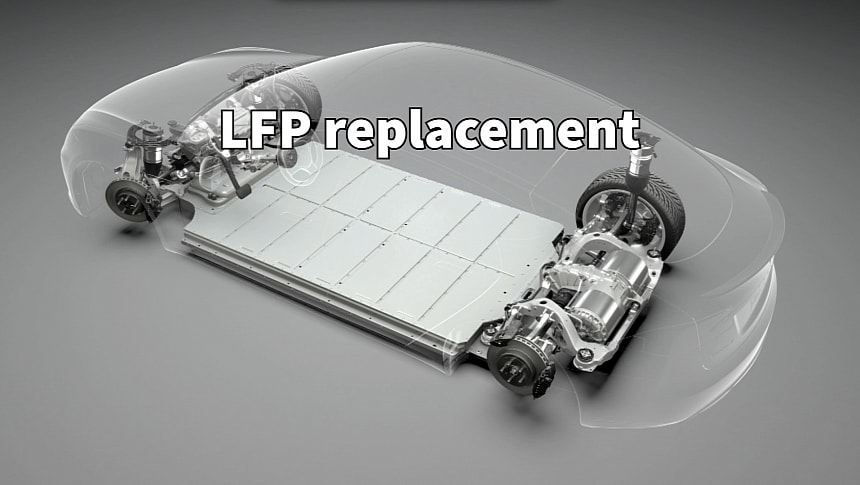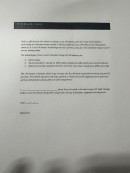In 2020, Tesla started using lithium-iron-phosphate battery cells in the base variants of the Made-in-China Model 3. One year later, the Model 3 RWD with an LFP battery pack appeared in the US, with the LFP-powered Model Y RWD following in 2023. Now, Tesla offers LFP pack retrofit even for Model 3 EVs that initially shipped with 2170 cells.
Li-ion batteries power almost all portable devices we use today, from phones and laptops to electric cars and even homes. However, not all Li-ion batteries are created equal, with several chemistries and form factors offering advantages and disadvantages. There's no ideal battery type, so the use-case scenario dictates their characteristics. For electric vehicles, three chemistries have become dominant: lithium-iron-phosphate (LFP), nickel-cobalt-aluminum (NCA), and nickel-manganese-cobalt (NMC).
LFP cells are cheap to produce and have many advantages in terms of safety and durability, but the iron is heavy, which affects energy density. NCA and NCM cells have high energy density, so they are used in performance EVs but have lower durability and are less stable than LFP. Tesla uses all three types in its EVs, with LFP cells in the base version of the Model 3 and Model Y and nickel-based chemistries in the rest of its lineup. The Model 3 was the first Tesla model to use the LFP cells, first for cars built at Giga Shanghai (since 2020) and later (2021) for those at Fremont.
Since Tesla started sales of the Model 3 in 2017, there have been cars that already required a battery replacement. Thankfully, Tesla offers an eight-year warranty for the battery pack, so these replacements have been performed under warranty. Until now, Tesla replaced defective 2170-cell battery packs with similar packs using NCA cells produced by Panasonic in Sparks, Nevada. However, a new report shows that Tesla is now actively proposing replacing the NCA packs with LFP-based equivalents.
The information has been shared on Elon Musk's social media network X by Warren (@Warren_pr1). Tesla requires affected Model 3 owners to sign a written agreement before installing the LFP pack. The document mentions both the advantages and disadvantages of having an LFP replacement instead of an NCA battery pack. The agreement is necessary to shield Tesla from possible complaints related to the LFP replacement.
Based on the document shared by Warren, the new LFP pack offers a longer service life, which is expected considering the chemistry. However, Tesla also promised that the new pack offers more range than the original NCA battery. Another advantage is the possibility of charging it to 100% daily instead of limiting the charge to 80%, as recommended for ternary batteries. This yields even more range in everyday driving, releasing the extra 20% capacity for regular use.
It's not all rosy because the LFP battery pack is heavier than the original battery. This affects the 0-60 acceleration time, which increases by about half a second. This also affects the vehicle's dynamics, which is why Tesla is upgrading the suspension to cope with the increased weight. The upgrade includes new springs, dampers, and a 4-wheel alignment.
LFP cells are cheap to produce and have many advantages in terms of safety and durability, but the iron is heavy, which affects energy density. NCA and NCM cells have high energy density, so they are used in performance EVs but have lower durability and are less stable than LFP. Tesla uses all three types in its EVs, with LFP cells in the base version of the Model 3 and Model Y and nickel-based chemistries in the rest of its lineup. The Model 3 was the first Tesla model to use the LFP cells, first for cars built at Giga Shanghai (since 2020) and later (2021) for those at Fremont.
Since Tesla started sales of the Model 3 in 2017, there have been cars that already required a battery replacement. Thankfully, Tesla offers an eight-year warranty for the battery pack, so these replacements have been performed under warranty. Until now, Tesla replaced defective 2170-cell battery packs with similar packs using NCA cells produced by Panasonic in Sparks, Nevada. However, a new report shows that Tesla is now actively proposing replacing the NCA packs with LFP-based equivalents.
The information has been shared on Elon Musk's social media network X by Warren (@Warren_pr1). Tesla requires affected Model 3 owners to sign a written agreement before installing the LFP pack. The document mentions both the advantages and disadvantages of having an LFP replacement instead of an NCA battery pack. The agreement is necessary to shield Tesla from possible complaints related to the LFP replacement.
Based on the document shared by Warren, the new LFP pack offers a longer service life, which is expected considering the chemistry. However, Tesla also promised that the new pack offers more range than the original NCA battery. Another advantage is the possibility of charging it to 100% daily instead of limiting the charge to 80%, as recommended for ternary batteries. This yields even more range in everyday driving, releasing the extra 20% capacity for regular use.
It's not all rosy because the LFP battery pack is heavier than the original battery. This affects the 0-60 acceleration time, which increases by about half a second. This also affects the vehicle's dynamics, which is why Tesla is upgrading the suspension to cope with the increased weight. The upgrade includes new springs, dampers, and a 4-wheel alignment.
To my understanding, this document is basically stating if you have a pre LFP SR Model 3 that needs a HV battery replacement while under warranty, Tesla will replace your pack to the most recent LFP design. It makes sense to do so, since these packs are now readily available vs… https://t.co/IfnMAUAsxZ
— Nic Cruz Patane (@niccruzpatane) March 9, 2024






